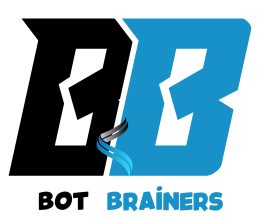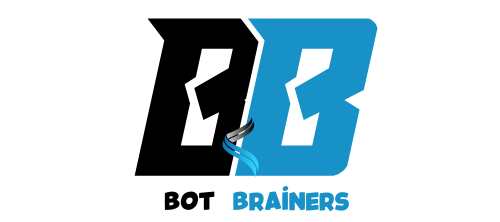The world of artificial intelligence (AI) and quantum computing is rapidly evolving, and few names are as synonymous with technological innovation as Elon Musk. From revolutionizing the electric car industry with Tesla to making space travel a reality with SpaceX, Musk has continuously pushed the boundaries of what’s possible. Now, his ventures seem to be converging with the advent of quantum AI software, a groundbreaking technology that combines the power of quantum computing with AI to deliver faster, smarter, and more efficient systems.
In this article, we’ll delve into the exciting world of quantum AI software with a focus on Elon Musk’s involvement. We’ll explore how his work could potentially change the tech landscape, including his influence on AI, and his ventures like the Elon Musk trading app, and review insights on QuantumAI Elon Musk.
What Is Quantum AI Software?
Before diving into Elon Musk’s connection to quantum AI software, it’s crucial to understand what this technology entails. Quantum computing is a new type of computing that leverages the principles of quantum mechanics. Unlike classical computers, which use bits to represent data in binary (0 or 1), quantum computers use qubits, which can represent multiple states at once. This ability allows quantum computers to solve specific problems at exponentially faster rates than traditional computers.
AI, on the other hand, involves creating systems that can learn, reason, and adapt based on data. AI systems have already shown their immense potential in areas like automation, healthcare, and customer service. When combined, quantum AI software blends the power of quantum computing with AI’s ability to process and learn from data, resulting in faster, more efficient problem-solving, optimization, and decision-making.
Elon Musk and Quantum AI Software
While Elon Musk is primarily known for his work in electric cars, space exploration, and renewable energy, he has shown significant interest in AI. His ventures, such as Tesla and Neuralink, are prime examples of Musk’s commitment to shaping the future of AI. However, his involvement in quantum AI software is less direct but equally influential.
Tesla’s Autopilot system is one area where Musk’s interest in AI and quantum computing could intersect. Tesla’s AI already uses machine learning algorithms to improve the performance of its self-driving cars, and the potential application of quantum AI could dramatically enhance these systems. QuantumAI Elon Musk is a term often used to speculate on how quantum computing could play a role in Tesla’s future developments, making its cars smarter and more capable of handling complex road situations in real-time.
Elon Musk’s Role in Quantum Computing
Musk has been outspoken about the risks and opportunities of AI, famously expressing his concerns about AI outpacing human intelligence. But despite these concerns, Musk’s ventures are deeply tied to the future of AI. His company Neuralink aims to create a direct interface between the human brain and computers, which could ultimately benefit from quantum AI to boost the processing power of brain-computer interactions.
As of now, Musk has not publicly stated direct involvement with the development of quantum AI software in the same way he has with electric cars or rockets. However, his influence and vision have likely contributed to the growth of technologies like quantum computing, as his companies and projects push the boundaries of what AI can do. For example, Tesla’s AI development has always sought to leverage cutting-edge technologies, and quantum AI could easily become part of this ongoing journey.
The Elon Musk Trading App: Quantum AI Integration
In recent years, Elon Musk has shown an increasing interest in financial technologies, leading to speculation about a potential Elon Musk trading app. While no such app has been officially released, there are significant discussions surrounding the possibility of Musk’s influence on the trading space.
Incorporating quantum AI software into a trading app could be a game-changer. Traditional financial models rely heavily on classical computing and AI to predict market trends, assess risks, and make real-time decisions. However, quantum AI could potentially revolutionize how these systems analyze data, predict market behavior, and optimize portfolios. With quantum AI’s ability to perform complex calculations and analyze massive datasets, it could give users of a potential Elon Musk trading app an edge by making smarter, faster investment decisions.
Does Elon Musk Own Quantum AI?
A common question is, “Does Elon Musk own quantum AI?” While Musk has not publicly announced ownership of any quantum AI-related software, his influence on the tech industry makes it likely that he has a hand in shaping its development. Musk’s companies, particularly Tesla and Neuralink, are closely tied to advancements in AI, and his ideas often shape the trajectory of the technologies involved.
Though he may not own quantum AI software outright, Musk’s influence over the future of AI and quantum computing is undeniable. His interest in AI and his ambition to tackle humanity’s biggest challenges may eventually lead to the development or acquisition of quantum AI technologies that integrate into his current ventures.
QuantumAI Elon Musk: Is It the Future?
The term QuantumAI Elon Musk is frequently discussed in online tech communities as the next big leap in both quantum computing and AI. The potential for Musk’s influence to drive quantum AI software into new realms is immense. For instance, imagine a world where Tesla’s cars drive autonomously and predict and adapt to every road condition in real-time using quantum AI algorithms. Similarly, Musk’s other ventures like Neuralink could see rapid advancements with quantum computing’s ability to model and predict brain interactions more accurately.
Another area where QuantumAI Elon Musk could make an impact is in his SpaceX missions. Quantum AI could potentially revolutionize spacecraft navigation, resource management, and even AI-driven mission planning, helping SpaceX achieve more ambitious goals such as Mars colonization.
Quantum AI Software: The Path to the Future
The rise of quantum AI software marks a turning point in technology. While classical AI and machine learning algorithms have already brought about significant advancements, quantum AI promises to supercharge these capabilities. By harnessing the immense computational power of quantum computers, AI systems could learn and solve problems faster, more accurately, and more efficiently than ever before.
From improving financial models to enhancing healthcare research and even advancing space exploration, quantum AI will shape industries in ways we can barely imagine. With figures like Elon Musk at the helm of AI and quantum computing-related ventures, the pace of innovation will only accelerate. Musk’s influence on AI will ensure that quantum AI will eventually become a mainstream tool, allowing for more intelligent, autonomous systems in everything from transportation to global communications.
Quantum AI Elon Musk Review: What’s the Verdict?
A Quantum AI Elon Musk review would likely emphasize the potential benefits and challenges associated with integrating quantum computing and AI. The combination of these two technologies holds immense promise, but there are also considerable hurdles to overcome. Quantum computers are still in the early stages of development, and developing quantum algorithms that work seamlessly with AI will take time and effort.
Musk’s ventures in AI and quantum computing offer a glimpse into a future where quantum AI software becomes the cornerstone of technological innovation. While we may not be there yet, the groundwork is being laid for a new era of smart systems capable of solving complex, real-world problems
Challenges in Developing Quantum AI Software
Despite the tremendous potential of quantum AI software, there are still several challenges that need to be addressed before it becomes a mainstream technology. The first and most significant hurdle is the development of stable, scalable quantum computers. Quantum systems are highly sensitive to environmental factors, and maintaining qubits in a stable state for long enough to perform meaningful computations is still a major technical challenge.
Another challenge is the integration of quantum computing with existing AI algorithms. Quantum AI systems will need to be compatible with the vast array of machine-learning techniques that are already in use today. Ensuring that quantum-enhanced AI systems can be easily adopted and integrated into existing workflows will be crucial for widespread adoption.
Finally, there’s the issue of quantum software itself. Developing robust, efficient quantum algorithms that can take full advantage of quantum computing is a field of active research, and it will take time before these algorithms are perfected for use with AI applications.
To read more about software visit our blog.
The Future of Quantum AI Software and Elon Musk’s Role
Quantum AI software holds enormous potential for reshaping industries and pushing the boundaries of what’s possible with artificial intelligence. As quantum computing technology matures, its integration with AI will only become more seamless, unlocking new opportunities for innovation and disruption.
With his ability to identify and nurture groundbreaking technologies, Elon Musk will likely continue to be a driving force behind these developments. While he may not be directly building quantum AI systems, his influence in industries like AI, autonomous vehicles, and brain-computer interfaces places him at the center of this technological revolution. His ventures will likely serve as testing grounds for quantum AI advancements, helping to bring them from the lab to real-world applications.
In the future, we can expect quantum AI software by Elon Musk to play a major role in everything from healthcare and manufacturing to finance and space exploration. It will enable smarter decision-making, faster problem-solving, and the ability to tackle some of humanity’s most pressing challenges. As quantum computing technology becomes more accessible, we will undoubtedly see an increasing number of AI-powered systems using the power of quantum mechanics to unlock new realms of possibility.
Conclusion
Quantum AI software by Elon Musk ventures, represents the next frontier in artificial intelligence and quantum computing. With its potential to revolutionize industries, accelerate machine learning, improve optimization, and enhance security, the combination of quantum computing and AI holds immense promise for the future. As the technology continues to evolve, Musk’s involvement will likely be a key factor in driving its adoption and helping it reach its full potential. Quantum AI is not just a theoretical concept—it’s a reality in the making, and with Elon Musk’s leadership, it’s poised to take us into a future where the impossible becomes possible.


